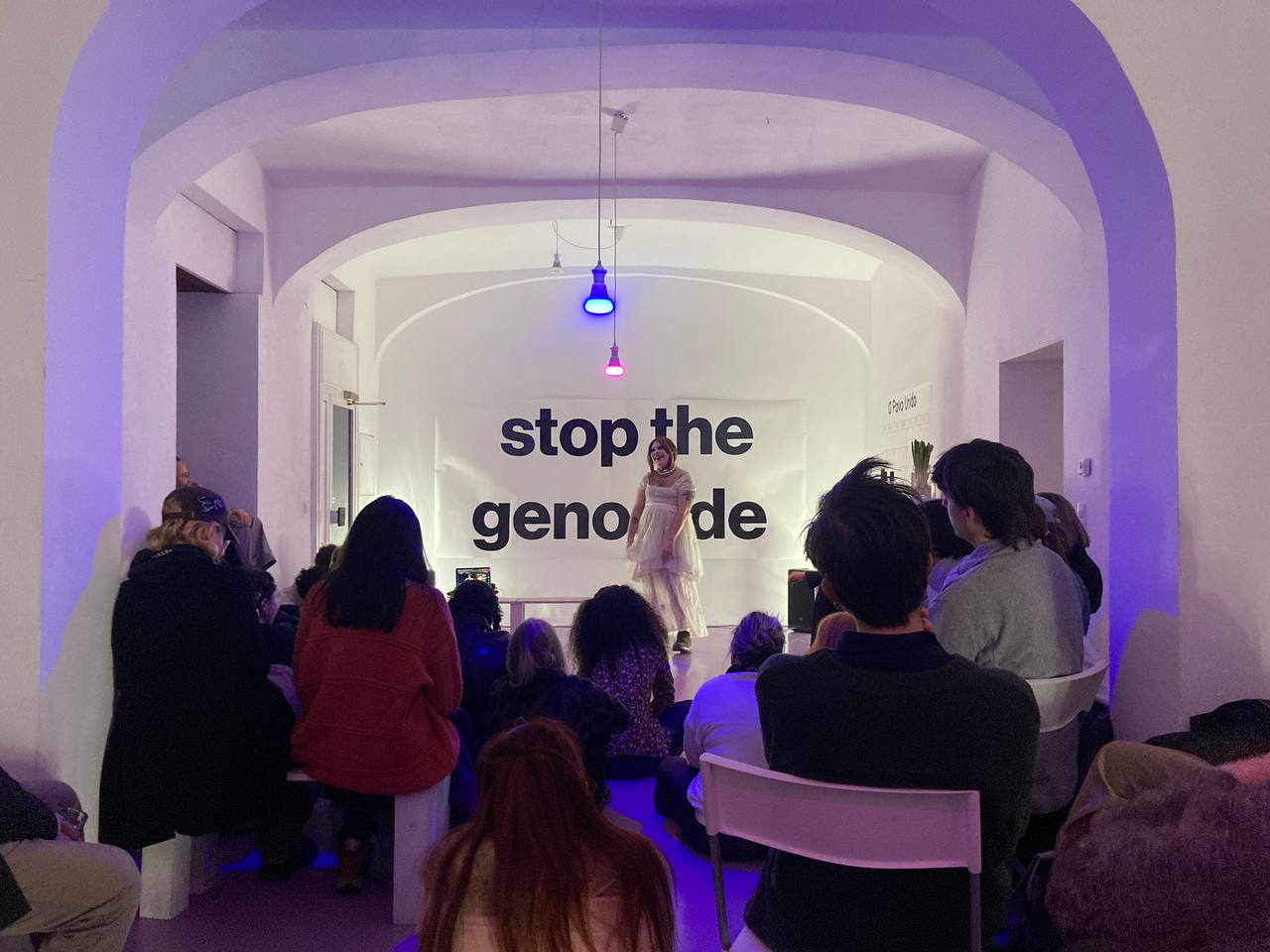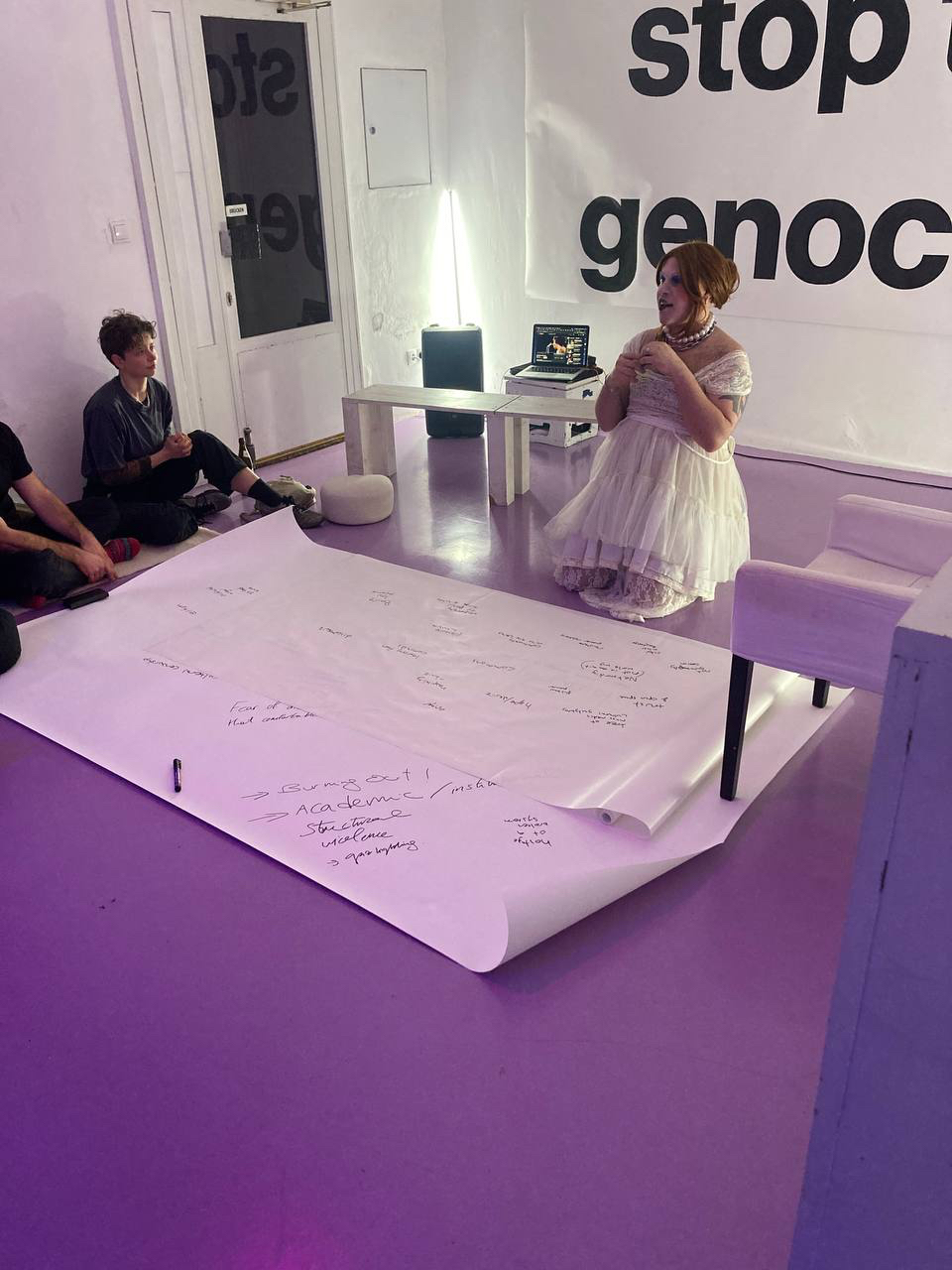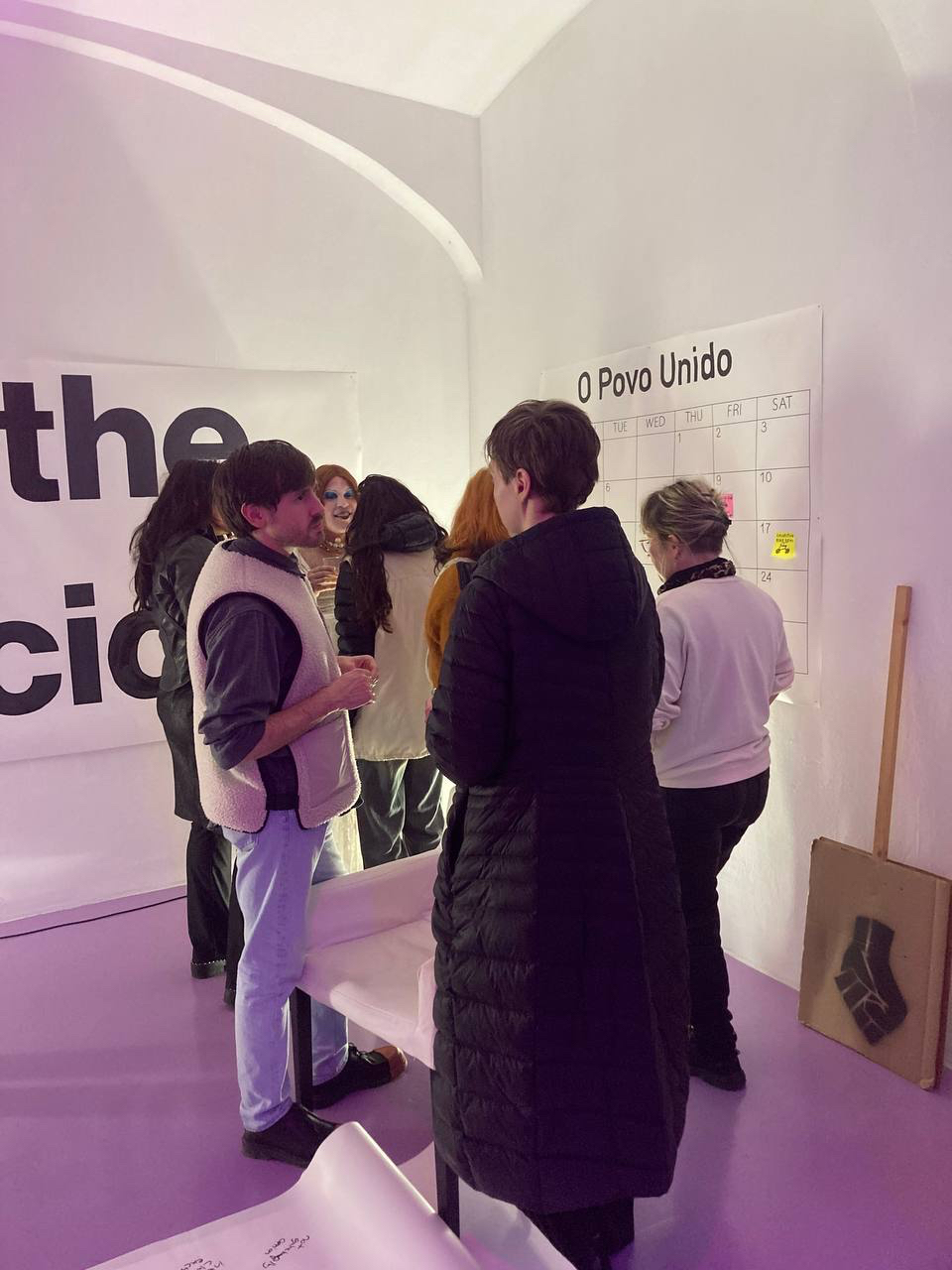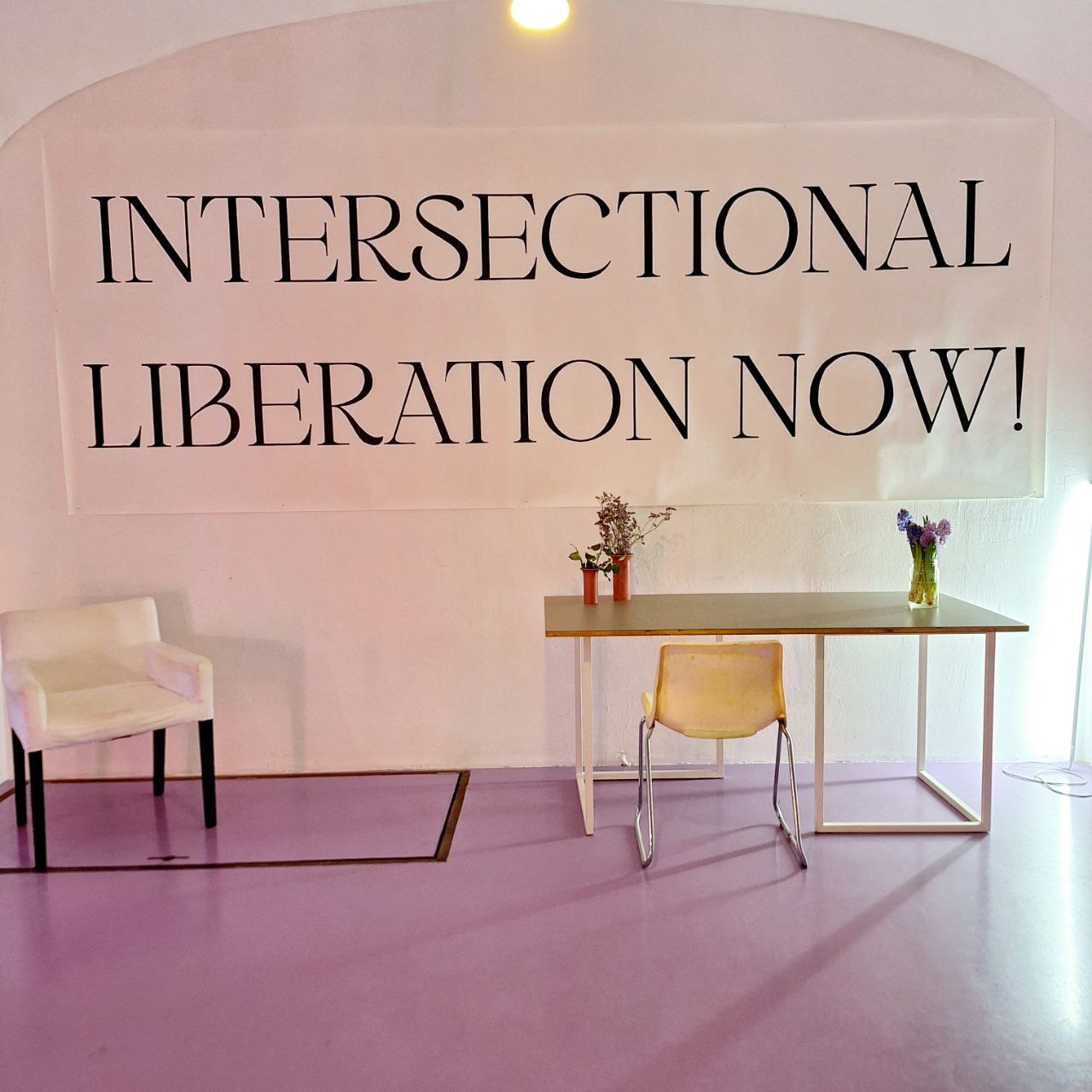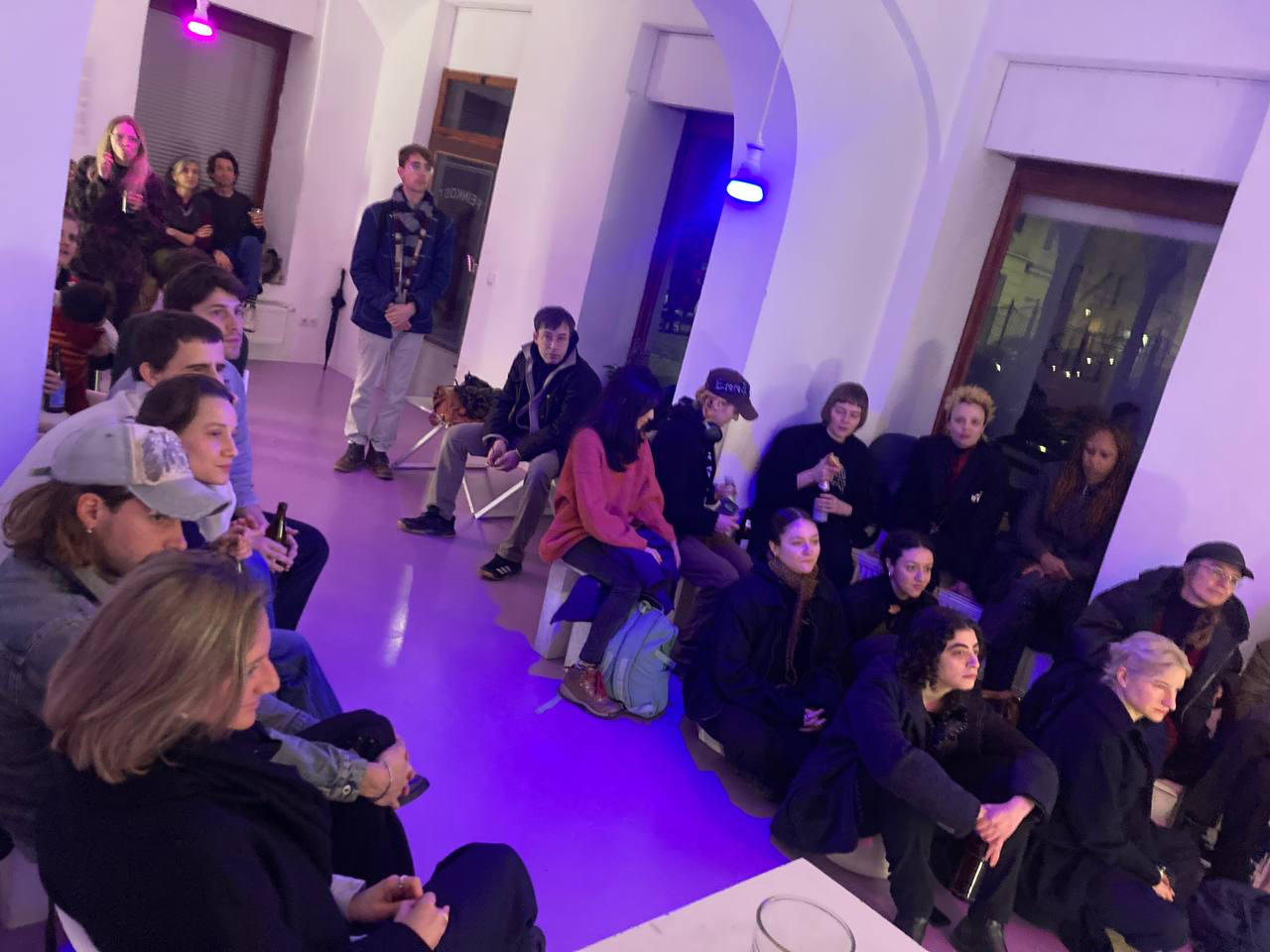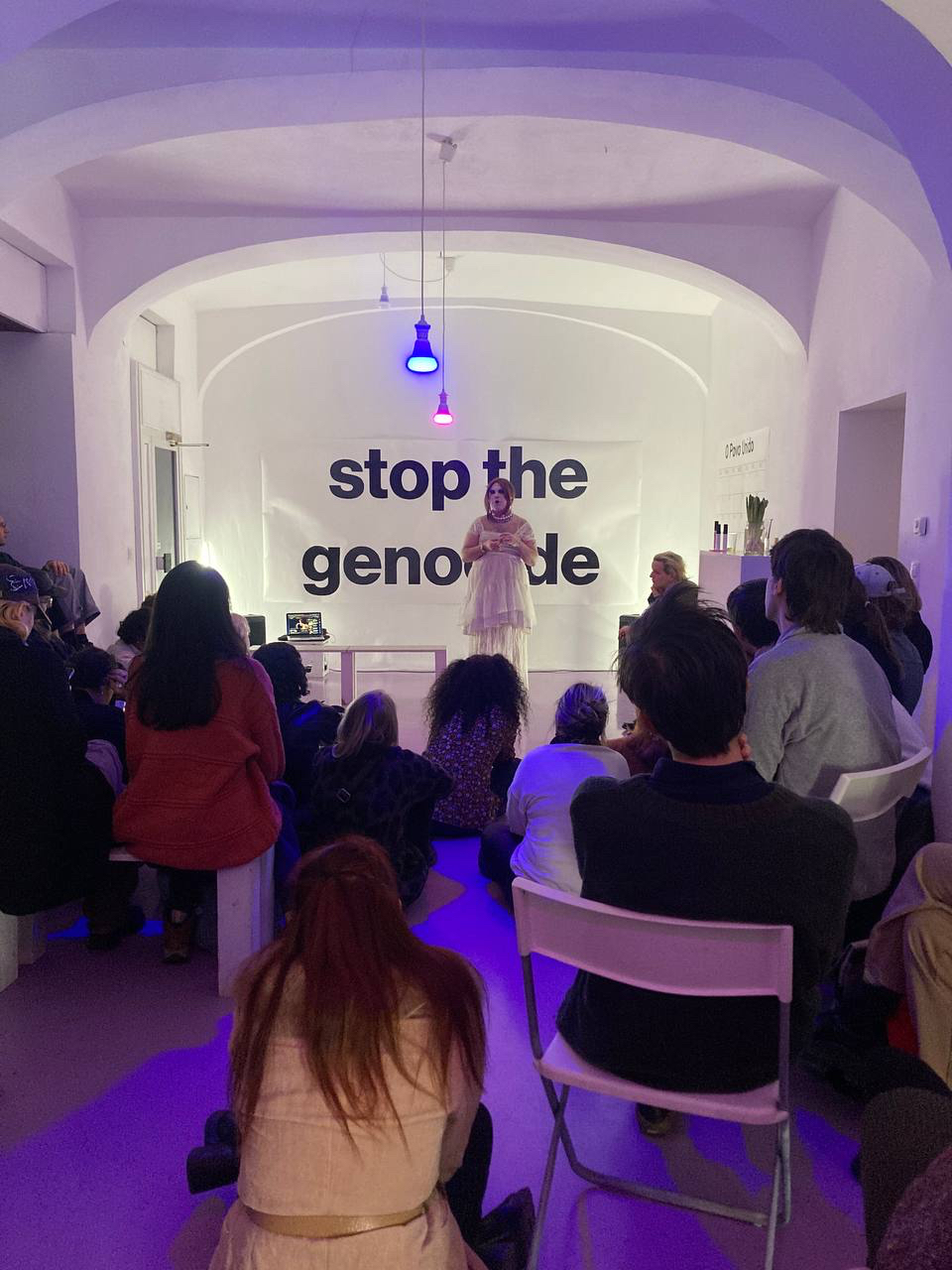O POVO UNIDO
O POVO UNIDO (The People United)
hosted by Dusty Whistles and realized in collaboration with the public
is a month-long series of events and collective programming.
Introduction of the project and collecting ideas:
Friday February 2, 2024
7 pm
school
You find the calendar of events to join here
We are seeking to bring together people who are new to activism, activists with a history of practice, and art publics within Vienna engaged in a spectrum of political struggles focused on anti-racism, gender, sexuality, disability, migration, labor, housing, and environmental justice. “O Povo Unido’’ is a creative container, which invites you into active participation and works to reimagine spaces of cultural production as public utilities for our needs, urgencies, and liberatory imaginary. Together we will enact new futures of creative collaboration, and develop a framework for an intersectional movement practice.
This month-long project includes fixed and open days transforming school into a commons for political activation and social transformation. We open the space to host your discussions, film screenings, reading groups, presentations, the transmission of oral histories, people's archival initiatives, spaces for care and grieving, the production of protest ephemera, activist trainings, and whatever actions are needed for the building of community, coalition and collective power.
school this time will not be just a space for consumption. This project enables your active participation – within this month, school can be used for your actions and ideas.
We invite groups, collectives and individuals to get in contact to contribute to O POVO UNIDO: opovounido_wien@proton.me
Dusty Whistles is a trans woman who is racialized as white and is considered able-bodied in a society that structurally prioritizes corponormativity and whiteness. She was born on the island of Paumanok on Matinecock territory in the colonial occupation that is called New York. She is from a Portuguese immigrant family of artisans and unionized service workers that fled and resisted the fascist state of the Estado Novo with migration paths between the island of Madeira, Venezuela and the colonial occupation called the United States. She currently lives with no fixed residence within a network of affinities and has been active culturally and politically between Lisbon and Berlin during the last 5 years. She is a Social Practice artist and post-human drag performer whose multidisciplinary work encompasses archival research and methodologies in conversation with intersectional resistance practice. Her approach to drag is contextualized within a movement and identity study, rooted in histories of criminality and liberation. Her work is informed by 23 years of activist labor, collective organizing, and a dedication to autodidactic practice.
